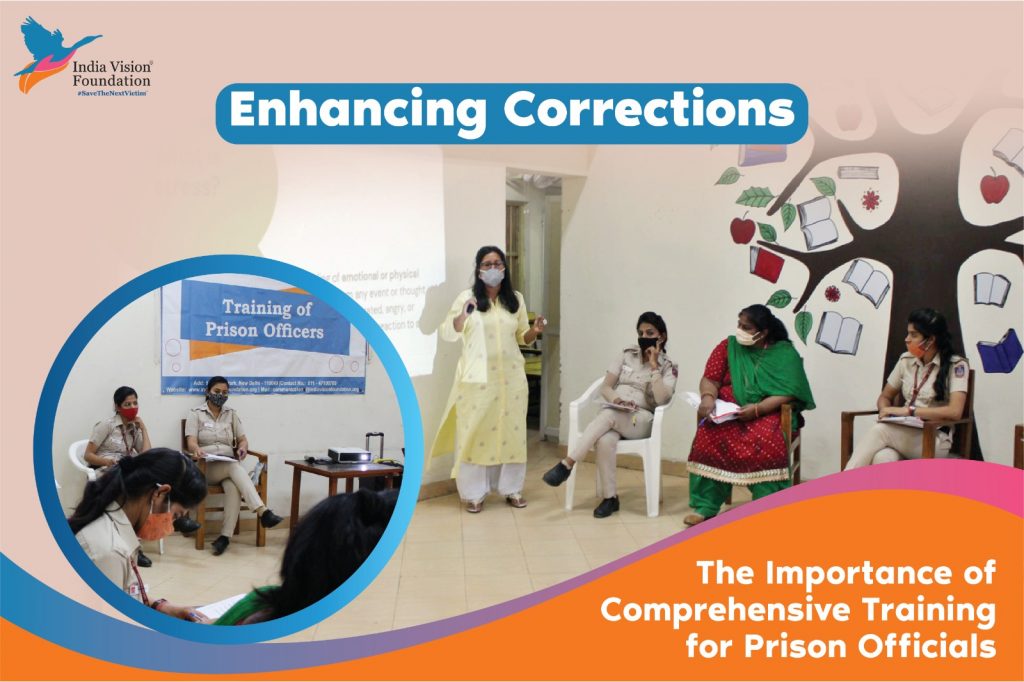Imagine a place where people sent to improve their lives are met with guidance and support, not just walls and bars. A place where rehabilitation takes centre stage and the path to redemption is paved with understanding and opportunity.
This is the vision we, as a society, should strive for when it comes to our correctional facilities. But achieving this vision hinges on a crucial element: comprehensive training for prison officials.
Think of prison officials as the architects of change within these institutions. They are the ones who hold the keys, not just to literal doors, but to the potential for positive transformation within each individual behind them.
Equipping them with the right tools and knowledge is not just about ensuring safety and security; it’s about fostering an environment that nurtures growth and fosters a sense of hope.
So, what does this comprehensive training look like? It’s a multi-faceted approach that goes beyond the basics of security protocols and emergency procedures. It delves into:
- Communication and de-escalation: Effective communication skills are vital for building trust and understanding with inmates. Knowing how to listen actively, empathize, and navigate challenging situations without resorting to force can significantly reduce tension and create a more positive atmosphere.
- Mental health awareness and training: Prisons house individuals with a variety of mental health needs. Equipping officials with the knowledge and skills to recognize and address these needs humanely and effectively is crucial. This includes understanding mental health conditions, providing appropriate support, and knowing when to seek professional intervention.
- Rehabilitation and reintegration programs: The ultimate goal of any correctional system should be to prepare individuals for successful reintegration into society. This means providing access to education, job training, and support services that address the root causes of criminal behaviour and equip individuals with the skills and resources they need to thrive on the outside.
- Cultural sensitivity and diversity training: Recognizing and respecting the diverse backgrounds and experiences of inmates is essential for building trust and rapport. Training officials to be culturally sensitive and understanding of different beliefs and practices can foster a more inclusive and humane environment.
- Conflict resolution and mediation skills: Prisons are inherently dynamic environments, and conflicts are inevitable. Equipping officials with the skills to mediate conflicts peacefully and effectively can prevent escalation and promote a more harmonious atmosphere.
By investing in comprehensive training, we invest in the potential for positive change within our correctional system.
We empower prison officials to be more than just keepers; we empower them to be mentors, guides, and catalysts for individual and societal transformation.
Here are some additional benefits of comprehensive training:
- Reduced recidivism rates: When inmates receive the support and tools, they need to address the underlying issues that led to their incarceration, they are less likely to re-offend upon release.
- Improved staff morale and safety: A positive and supportive prison environment benefits everyone, including staff. Officials who feel equipped and empowered to handle challenging situations are less likely to experience burnout and are better able to maintain a safe and secure environment for themselves and the inmates.
- Stronger communities: When individuals successfully reintegrate into society, they contribute positively to their communities. Investing in rehabilitation programs that work can lead to safer and more vibrant communities for everyone.
Remember, creating a truly transformative correctional system is not just about bricks and mortar; it’s about investing in the people who make it function.
By prioritising comprehensive training for prison officials, we can build a system that fosters hope, rehabilitation, and ultimately, a better future for all.
Let’s make our correctional facilities places of positive change, not just confinement.
Let’s invest in the potential for redemption, and build a future where everyone has the opportunity to turn their lives around.


